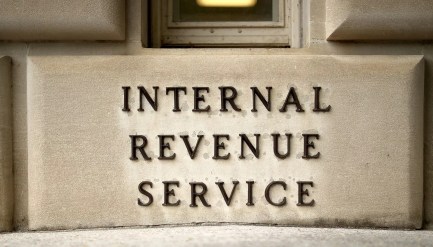Churches and other religious organizations that operate, supervise, or control a private school must file a certificate of racial nondiscrimination (Form 5578) each year with the Internal Revenue Service (IRS).
The certificate is due by the 15th day of the fifth month following the end of the organization’s fiscal year. This is May 15 of the following year for organizations that operate on a calendar-year basis. For example, the Form 5578 for 2022 is due May 15, 2023.
What is a “private school?”
A private school is defined as an educational organization that normally maintains a regular faculty and curriculum and normally has a regularly enrolled body of pupils or students in attendance at the place where its educational activities are regularly conducted. The term includes primary, secondary, preparatory, or high schools, as well as colleges and universities, whether operated as a separate legal entity or an activity of a church.
Key point. The term school also includes preschools, and this is what makes the reporting requirement relevant for many churches. As many as 25 percent of all churches operate a preschool program.
Key point. Independent religious schools that are not affiliated with a church or denomination and that file Form 990 (see above) do not file Form 5578. Instead, they make their annual certification of racial nondiscrimination directly on Form 990 (Schedule E).
Filing the certificate of racial nondiscrimination is one of the most ignored federal reporting requirements.
Churches that operate a private school (including a preschool), as well as independent schools, may obtain Form 5578 through the IRS website.
Completing Form 5578 is easy
Form 5578 is not complicated. A church official simply identifies the church and the school and certifies that the school has “satisfied the applicable requirements of sections 4.01 through 4.05 of Revenue Procedure 75-50.”
The applicable requirements are:
(1) The school has a statement in its charter, bylaws, or other governing instrument, or in a resolution of its governing body, that it has a racially nondiscriminatory policy toward students.
(2) The school has a statement of its racially nondiscriminatory policy toward students in all its brochures and catalogs dealing with student admissions, programs, and scholarships.
(3) The school makes its racially nondiscriminatory policy known to all segments of the general community served by the school in one of the following ways:
• publishing a notice of its racially nondiscriminatory policy at least annually in a newspaper of general circulation,
• utilizing broadcast media, or
• displaying a notice of its racially nondiscriminatory policy on its primary, publicly accessible Internet homepage at all times during its taxable year (excluding temporary outages due to website maintenance or technical problems) in a manner reasonably expected to be noticed by visitors to the homepage. IRS Revenue Procedure 2019-22.
The IRS has clarified that “a publicly accessible homepage is one that does not require a visitor to input information, such as an email address or a username and password, to access the homepage.
Factors in determining whether a notice is reasonably expected to be noticed by visitors to the homepage include the size, color, and graphic treatment of the notice in relation to other parts of the homepage, whether the notice is unavoidable, whether other parts of the homepage distract attention from the notice, and whether the notice is visible without a visitor having to do anything other than simple scrolling on the homepage.
A link on the homepage to another page where the notice appears, or a notice that appears in a carousel or only by selecting a dropdown or by hover (mouseover) is not acceptable. If a school does not have its own website, but has webpages contained in a website, the school must display a notice of its racially nondiscriminatory policy on its primary landing page within the website.”
The IRS has drafted the following statement that satisfies the publicity requirement:
Notice Of Nondiscriminatory Policy As To Students
The (name) school admits students of any race, color, national and ethnic origin to all the rights, privileges, programs, and activities generally accorded or made available to students at the school. It does not discriminate on the basis of race, color, national and ethnic origin in administration of its educational policies, admissions policies, scholarship and loan programs, and athletic and other school-administered programs.
The publicity requirement is waived if one or more of the following exceptions apply:
• During the preceding three years, the enrollment consists of students at least 75 percent of whom are members of the sponsoring church or religious denomination, and the school publicizes its nondiscriminatory policy in religious periodicals distributed in the community.
• The school draws its students from local communities and follows a racially nondiscriminatory policy toward students and demonstrates that it follows a racially nondiscriminatory policy by showing that it currently enrolls students of racial minority groups in meaningful numbers.
(4) The school can demonstrate that all scholarships or other comparable benefits are offered on a racially nondiscriminatory basis.
